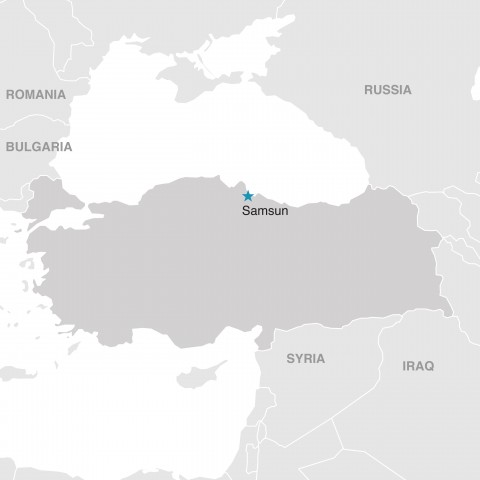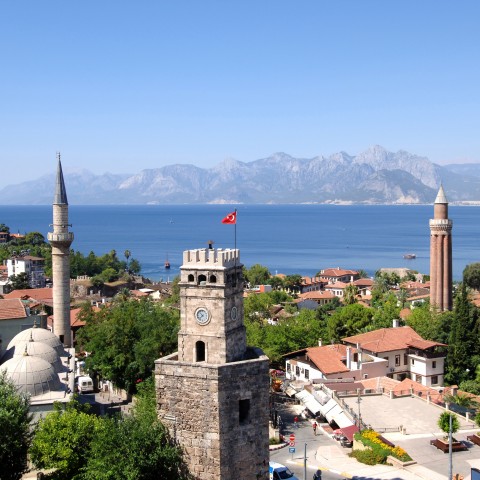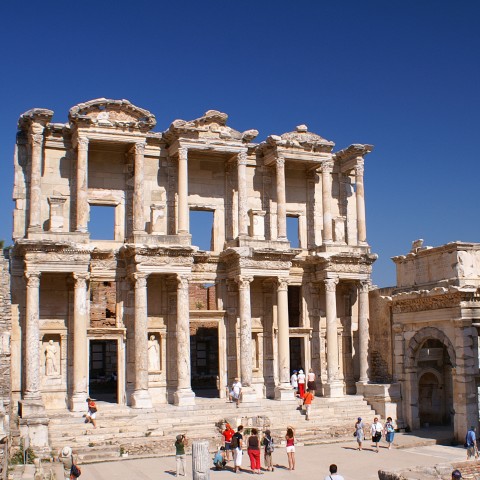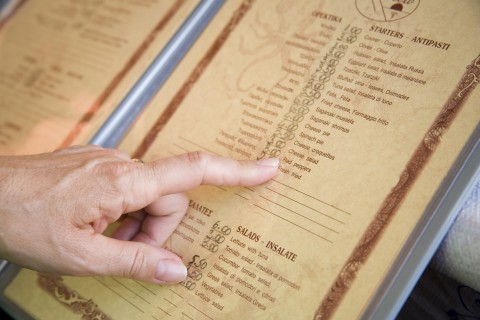
Pronouns, in general, help to prevent repeating nouns, which can be annoying. During conversations
or while writing, one should avoid doing this for the sake of clarity. Redundancy only causes confusion.
Pronouns in Turkish language-learning are essential, because having a good command of Turkish pronouns will help you be a better, more efficient speaker and writer of the language. Pronunciation is also key; check out this Turkish pronouns list to hear the correct pronunciation of each word and expand upon your pronouns in Turkish vocabulary.
Make sure you’re pronouncing the whole word, because every letter counts. Turkish is a very efficient language and relies heavily on short suffixes (sometimes made up of just one letter) to get the message across. Unlike in English, Turkish words may take on different suffixes, some of which express grammatical tenses. There’s an order to how the different types of suffixes are added; according to this order, the personal pronoun suffixes are added at the end of the word, as the last suffix.
Take a look at this example:
- Ben gelmiştim.
“I had come.”
In the English sentence, grammatical tense is expressed through the word “had.” In the Turkish sentence, instead of using a separate word, we add the suffix -miş (for past tense), then we add the pronoun ending -m to state that the subject is the first person singular.
But not all pronouns are formed this way. There are two types of Turkish pronouns:
- Stand-alone pronouns
- Pronouns that are added as suffixes
It’s important to know both kinds, because failing to use them correctly could lead to misunderstandings. We’ll cover each kind below as we look into different forms of pronouns and learn through Turkish pronouns examples. Make sure to find the most efficient and unique way you’re able to learn this important grammar topic. When studying pronouns in Turkish, lessons like this are helpful, but can only go so far.
 Table of Contents
Table of Contents
- Turkish Personal Pronouns
- Turkish Possessive Pronouns
- Demonstrative Pronouns in Turkish
- Turkish Interrogative Pronouns
- Turkish Indefinite Pronouns
- Turkish Relative Pronouns
- The Turkish Reflexive Pronoun
- Suffixed Pronouns in Turkish
- Things to Remember about the Use of Turkish Pronouns
- Conclusion
1. Turkish Personal Pronouns

Personal pronouns are the most common type of pronoun. Here, we’ll go over personal pronouns in Turkish, phrases to help you understand how they work, and more information.
1- 1st, 2nd, and 3rd Person Singular Pronouns
- Ben (I): Ben çok yoruldum. “I am very tired.”
- Sen (you) Sen çok yoruldun. “You are very tired.”
- O (he/she) O çok yoruldu. “He/she/it is very tired.”
- Please note that the third singular person o is a Turkish gender-neutral pronoun.
- Unlike in English, in Turkish we add a suffix to the verb to emphasize the person. In daily life or conversational writing, Ben çok yoruldum could be replaced by a mere Çok yoruldum. Omitting the stand-alone pronoun doesn’t change the meaning. But stating it helps to emphasize that the subject is the first person.
- Even when using stand-alone pronouns, we must take care to add the appropriate endings to the verb. As you can see in the examples above, we add -m, -n, and no endings to the verb for the first, second, and third person respectively.
2- 1st, 2nd, and 3rd Person Plural Pronouns
- Biz (we): Biz çok yorulduk. “We are very tired.”
- Siz (you): Siz çok yoruldunuz. “You are very tired.”
- Onlar (they): Onlar çok yoruldular. “They are very tired.”
- The first, second, and third persons require adding a -k, -nuz, and -lar, respectively, to emphasize the subject.
A. Object Forms:
- Ben (Me)
Beni seviyorlar.
“They love me.”
Add suffix: i, ı, o, ö, u, or ü according to the vowel pattern.
B. Formal / Honorific or Informal / Casual Forms:
Biz; Siz (We; You) are used like the royal “we.” The plural meaning doubles as an honorific.
Example:
Biz size emrettik.
“We ordered you.”
Here, both “we” and “you” are used formally and have plural meanings.
C. Direct Forms:
Add -i:
Ali ipi aldı.
“Ali took the string.”
Explanation:
ip + i
2. Turkish Possessive Pronouns
Possessive pronouns are what allow you to identify the owner of something without using the same noun over and over. Learn about Turkish possessive pronouns in this section to increase your Turkish skills and knowledge.
Add -m to ben; add -n to sen; add nothing to o.
Example: Benim kalemim. “My pencil.”
Senin kalemin. “Your pencil.”
Onun kalemi. “His/Her pencil.”
3. Demonstrative Pronouns in Turkish
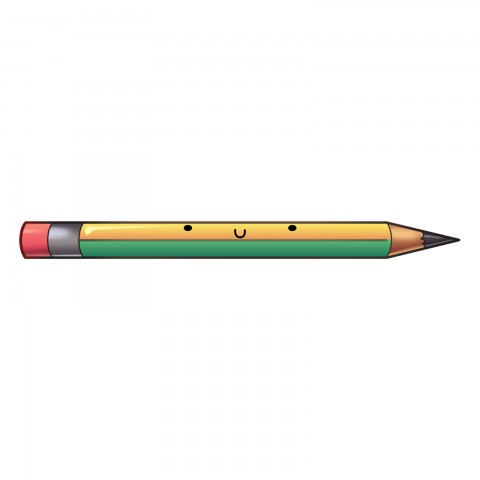
Here are some demonstrative pronouns with examples of them in sentences. Notice the suffix that emphasizes the person respectively.
Bu (This):
Bu kalem benim.
“This pencil is mine.”
Bunlar (These):
Bu kalemler benim.
“These pencils are mine.”
Plural (add -ler to the noun)
O (That):
O kalem benim.
“That pencil is mine.”
Onlar (Those):
O kalemler benim.
“Those pencils are mine.”
Plural (add -ler to the noun)
1- Add a suffix (-ler/lar) to Make Plural:
Bu beyaz. “This is white.”
Bunlar beyaz. “These are white.”
2- Demonstrating Place: Burada; Orada:
Burada (Here):
Ev burada.
“The house is here.”
Orada (There):
Ev orada.
“The house is there.”
4. Turkish Interrogative Pronouns

- Ne (What):
Sen ne hazırladın?
“What did you prepare?”
- Hangisi (Which):
Hangisi senin?
“Which (one) is yours?”
- Kim/Kimin (Who/Whom/Whose):
O elbise kimin?
O elbise kimin?
- Nerede (Where):
Senin evin nerede?
“Where is your house?”
- Ne zaman (When):
Ne zaman eve geldin?
“When did you come home?”
- Neden (Why):
Neden ekmek aldın?
“Why did you get bread?”
5. Turkish Indefinite Pronouns
- Herkes (everyone/everybody):
Herkes sevilmek ister.
“Everyone wants to be loved.”
- Her yer (everywhere):
Her yer karanlık.
“Everywhere is dark.”
- Her şey (everything):
Her şey hazır.
“Everything is ready.”
- Birisi (Someone/somebody):
Birisi benim çantamı getirmiş.
“Somebody brought my bag.”
- Bir yer/bir yerler (somewhere):
Ekmek satan bir yer biliyor musun?
“Do you know somewhere we can get bread?”
- Bir şey (something):
Sen bir şey saklıyorsun!
“You are hiding something!”
- Hiç kimse (no one/nobody):
Hiç kimse onu sevmiyor.
“No one likes him/her.”
- Hiçbir yer (nowhere):
Hiçbir yer İstanbul’a benzemez.
“There’s nowhere like Istanbul.”
- Hiçbir şey (nothing):
Bana hiçbir şey almadı.
“He bought me nothing.”
- Kimse/Herhangi biri (anyone/anybody):
Kimse var mı?
“Is anybody there?”
- Herhangi bir yer (anywhere):
Ben istediğim herhangi bir yere gidebilirim.
“I can go anywhere I want.”
- Herhangi bir şey (anything):
Herhangi bir şey istiyor musun?
“Do you want anything?”
6. Turkish Relative Pronouns
Turkish relative pronouns are as follows:
- Which (hangi)
- That (o)
- Who (kim)
- Whom (kim)
- Whose (kimin)
In Turkish, you usually add a suffix to the noun even though you’ve used a relative pronoun:
relative pronoun + noun + relative suffix
Example 1:
Hangi ev senin? O ev benim.
“Which house is yours? That is mine.”
Example 2:
Kim ödevini yaptı?
“Who did their homework?”
Explanation: ödevini (ödev + ini)
Example 3:
Kimin kedisi miyavladı?
“Whose cat meowed?”
Explanation: kedisi (kedi + si)
7. The Turkish Reflexive Pronoun

The pronoun kendi (or “myself” in English) is used to emphasize the subject. You may see a personal pronoun plus the reflexive pronoun in the same sentence. Take a look at this example:
- Ben keki kendim yedim.
“I ate the cake by myself.”
The meaning is the same when we omit the word kendim, but adding it emphasizes the fact that “I” was the one who ate.
According to the person, the reflexive or intensive pronoun kendi takes on different pronoun suffixes.
Singular
- Kendim
Myself
- Kendin
Yourself
- Kendi
Himself/Herself
Plural
- Kendimiz
Ourselves
- Kendileri
Yourselves
- Kendileri
Theirselves/Themselves
8. Suffixed Pronouns in Turkish
1. Motion Toward Suffixes
Add -e/-a to imply moving toward an object/person:
Bana (to me)
Sana (to you)
Ona (to him/her)
Bize (to us)
Size (to you)
Onlara (to them)
Examples:
Bana gidelim. Sana gidelim. Ona gidelim. (Singular: Let’s go to my / your / his place.)
Bize gidelim. Size gidelim. Onlara gidelim. (Plural: Let’s go to our / your / their place.)
2. Static Condition Suffixes

Add -de-da to a pronoun to imply a condition:
Bende (with* me)
Sende (with you)
Onda (with him/her)
Bizde (with us)
Sizde (with you – plural)
Onlarda (with them)
*note: depending on the context -de can be also translated as “in, on, at”
Examples:
Çanta bende. Çanta sende. Çanta onda. (Singular: The bag is with me / you / him.)
Çanta bizde. Çanta sizde. Çanta onlarda. (Plural: The bag is with us / you / them.)
3. Motion Away Suffixes
Add -den/-dan to imply moving away from something:
Benden (from me)
Senden (from you)
Ondan (from him/her)
Bizden (from us)
Sizden (from you – plural)
Onlardan (from them)
Examples:
Kedi benden kaçtı. Kedi senden kaçtı. Kedi ondan kaçtı. (Singular: The cat ran from me / you / him.)
Kedi bizden kaçtı. Kedi sizden kaçtı. Kedi onlardan kaçtı. (Plural: The cat ran from us / you / them.)
9. Things to Remember about the Use of Turkish Pronouns
Turkish pronouns and suffixes are short, but they add loads of meaning to a word or a whole sentence. Turkish differs from English in the way it relies heavily on suffixes to convey meaning quickly and easily.
Here are a few points to take care of when using pronouns:
- The nasal -m and -n endings: The first and second person suffixes are both nasal sounds and may be easily confused. Take care not to. You could add a pronoun to emphasize which person you’re referring to, if this is helpful to you.
- Turkish is a genderless language. When it comes to Turkish pronouns, gender doesn’t matter; there’s no gender-specific pronouns for the third person. This is something that may take getting used to for English-speakers. You may need to add a noun after the pronoun, such as kadın meaning “woman,” kız meaning “girl,” adam meaning “man,” or oğlan meaning “boy” to specify who you’re referring to.
Examples:
- Onu gördün mü?
“Did you see him/her?”
- Kimi gördüm mü?
“Who are you talking about?”
- O kızı gördün mü?
“Did you see her?”

- Because pronouns are used to replace nouns, it’ll be useful to strengthen your vocabulary with more nouns and adjectives. Having an expansive vocabulary will enable you to express yourself better. You can practice from noun lists and lists of adjectives to support your language-learning.
Once you get the hang of it, pronouns aren’t that hard to master. Make sure to practice reading and listening to Turkish so you’re immersed in the language for long periods and are exposed to all the sentence and word patterns.
Next, how about exploring further with adverbs and phrases for connecting thoughts?
10. Conclusion
Before you go, let us know in the comments how you feel about Turkish pronouns so far. Do you find them difficult still, or are you getting the hang of it? We look forward to hearing from you!
Learn Turkish pronouns at TurkishClass101! You’ll find a wealth of resources and fun ways to engage in learning Turkish, including more insightful blog posts like this one and free Turkish vocabulary lists to help you broaden your word knowledge! Learning a new language can seem like an impossible task at times, but know that with enough determination and hard work, you’ll be speaking, reading, and writing Turkish like a native!

















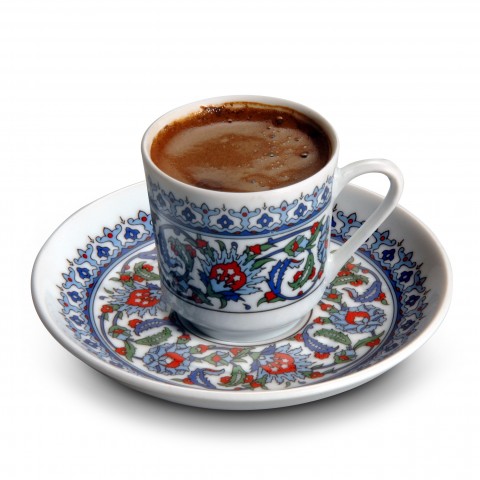


 Table of Contents
Table of Contents






 Table of Contents
Table of Contents


